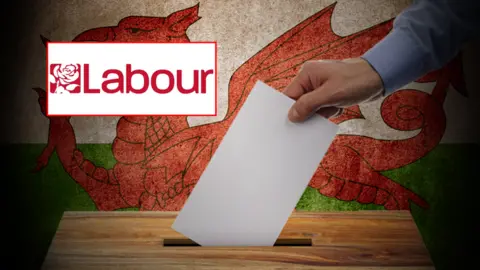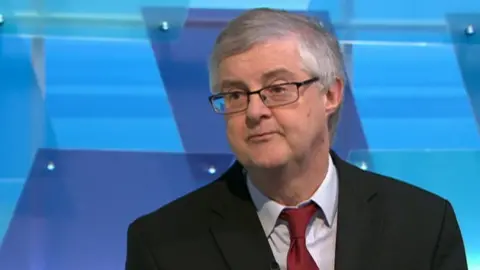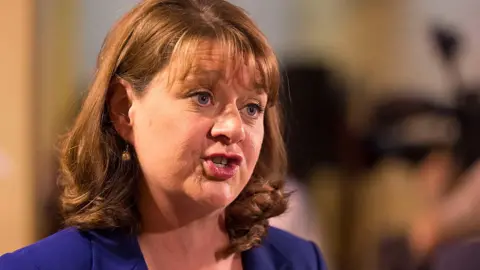Labour AMs mull life after Carwyn Jones' leadership
 Thinkstock
ThinkstockAn intriguing story within the Welsh Labour fold over the past week has been the public disagreement over the decision to stick with the electoral college system to elect a successor to Carwyn Jones.
In the light of calls for his resignation after the death of Carl Sargeant, and as a number of inquiries into the matter gather momentum, there is more of an edge to the issue than would otherwise be the case.
Or as one senior figure in the party told me, "life after Carwyn" is now a subject of conversation among Labour AMs.
The problem for Welsh Labour of sticking with the old system is that it flies in the face of what is happening elsewhere in the party.
The First Minister insists the matter has been dealt with because conference last year decided to allow the party's Welsh executive committee to consult and make the final decision, which it duly did in November.
But those who support one member one vote say conference agreed for the executive committee to set out the "procedural arrangements" on the election of a new leader, rather than making a final decision.
Expect plenty of renewed effort to bring the matter back to the floor of the Welsh conference in the Spring.
This is where we get into the detailed machinations of the Labour party and the standing orders committee, which is the gatekeeper for what is debated and voted on the conference floor.
What is at stake here is a tussle between the Blairites and the Corbynistas, who have been in the ascendancy in the constituencies in recent years.
Crudely speaking, the electoral college would make it easier for a potential candidate like the Health Secretary Vaughan Gething to succeed Mr Jones as the leader of the party in Wales, while one member one vote would favour a Corbyn-supporting figure like Mark Drakeford.

These are names that typically do the rounds when the subject comes up.
Vaughan Gething has never publicly said whether he would stand. Mark Drakeford would consider standing, but only on a reluctant basis.
There may of course be others that enter the frame whenever the moment arrives.
Carwyn Jones has always been careful not to spell out how long he would stay in the job, although there is a common assumption that he will want to go after his 10 year anniversary which is still the best part of two years away.
And away from Labour, what are we to make of the way Andrew RT Davies has kicked off 2018 by offering an olive branch to Plaid Cymru to work together to oust Labour in future?
Leadership
This touches on the elephant in the room of assembly politics - there will only ever be an alternative to Labour if the main opposition parties find a way of working together.
Everyone knows this is an impossibility with Leanne Wood in charge as it would go against the grain of so much of what she stands for.
In which case, the Tory appeal is about sending a mischievous message to Plaid AMs that the only way they could get a sniff if power would be under a new leadership.
There is no immediate prospect of that happening but under the rules of the party there could be a challenge in the autumn, which Leanne Wood herself acknowledged this weekend.
Her time as leader has been dominated by elections and so with no immediate prospect of one in sight, she has taken the opportunity to set out her priorities over the next few years.
 Getty Images
Getty ImagesThe buzzword throughout was decentralisation, as the party appears to have settled on a strategy for dealing with the threat of Labour under Jeremy Corbyn.
With so much common ground between Leanne Wood's politics of social justice and Corbyn's Labour party, she has focused her attack on what she believes are the centralising tendencies within Labour.
Expect Plaid's future direction to be as much about localism as nationalism with Leanne Wood at the helm, and expect policies designed to give local authorities greater power.
A final note: I suspect many, like me, had a welcome dose of perspective with the sight of a smiling Steffan Lewis in the assembly chamber, despite being diagnosed with cancer before Christmas.
I wish him all the best in his battle away from politics in 2018.
